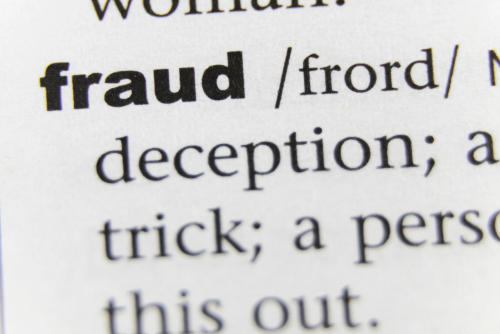Ex-lawyer who argued football head injuries made him unable to form fraud intent loses in 6th Circuit

Image from Shutterstock.
A federal appeals court has affirmed the conviction of a disbarred lawyer who argued that football head injuries made him unable to form an intent to defraud his bank.
The 6th U.S. Circuit Court of Appeals at Cincinnati ruled against disbarred Memphis, Tennessee, lawyer George Ernest Skouteris Jr. in an Oct. 19 opinion.
Skouteris was found guilty of seven counts of bank fraud and sentenced to 30 months in prison in November 2021. He was accused of settling cases without notifying clients, forging their signatures on settlement checks, and then depositing the checks into his account.
Skouteris is a former college football player who “moved from the stadium to the courtroom,” the 6th Circuit said. But his client service “was more in the form of a turnover than a touchdown.”
Skouteris had argued that he suffered mental impairments, including possible chronic traumatic encephalopathy, because of his football injuries. At trial, the central issue was whether he had the intent to commit bank fraud that is required by the statute.
Experts from both sides agreed that Skouteris suffered from depression and an alcohol use disorder, but they disagreed on the impact on his mental ability. Jury instructions explained the state of mind needed for a guilty verdict, but there was no instruction on diminished mental capacity because of the trial judge’s ruling.
Skouteris argued that the evidence was insufficient to support the conviction, and the jury should have been instructed on diminished mental capacity.
The 6th Circuit rejected Skouteris’ arguments in an opinion by Judge Chad A. Readler, an appointee of former President Donald Trump.
The appeals court cited Shaw v. United States, a 2016 U.S. Supreme Court decision holding that the government doesn’t have to show a purpose to deprive a bank of funds to satisfy the “scheme to defraud” requirement in the bank fraud statute.
“In other words,” the appeals court said, the statute “requires that the defendant know that he is likely to deprive the bank of its property interests, but it does not require that the defendant have that purpose in mind.”
Applying that standard, “a mountain of circumstantial evidence demonstrated Skouteris’ knowledge that depositing unauthorized settlement checks into his own account was likely to wrongfully deprive the bank of its property,” the appeals court said.
The 6th Circuit also said the jury instructions proposed by Skouteris “said very little” and “were substantially covered” by the instructions given to the jury.
Hat tip to Law360 and Reuters, which had coverage of the opinion.
Write a letter to the editor, share a story tip or update, or report an error.



